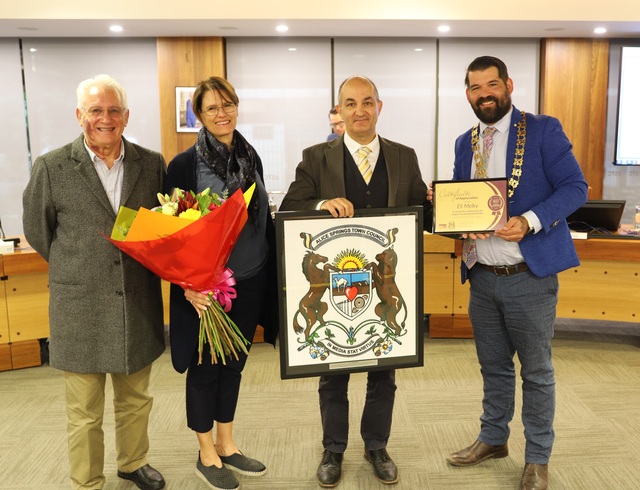In each edition we feature the views of a Local Government Association President. The following is from Councillor Julie Hansen, President of the Victorian Local Governmance Association.
Why would a peak Local Government body, the VLGA, participate at the recent World Summit on Sustainable Development (WSSD) in Johannesburg South Africa? What has this to do with Local Governments and their communities?
With its unique joint community and Local Government membership, a key focus of the VLGA is to advocate, promote and be involved in building better and more sustainable communities. With globalisation threatening to cut people adrift from their governance processes, and with political cynicism rampant, the importance of building at a local level has assumed powerful significance. This is the level at which people can have meaningful impact on their political environment and collectively assert their identity.
As a member of the independent Local Government delegation to WSSD coordinated by Environs Australia, my commitment was to expand the VLGA’s understanding of the importance of the local, as a powerful tool in achieving global sustainability. Since the historic Rio Summit, where a global blueprint for sustainable development was documented in Local Agenda 21 and the Rio Principles, there has been a widening gap between rich and poor, continued degradation of the environment, and rampant over consumption in the West.
Australia’s subsequent track record and our international standing necessitates some dramatic rebuilding, with the appropriate starting point being our own backyards through our Local Governments. Opportunities for nations to cooperate and agree to a meaningful action plan for global sustainability have been hijacked by political agendas. However, Local Governments, supporting local ‘grass roots’ action for sustainability, have nourished the spirits of those who might otherwise have become despondent.
At WSSD, local actions for sustainability in the environmental, social, cultural and economic areas over the last ten years, facilitated by Local Governments were praised by many, including Australian Environment Minister, David Kemp.
Adequately resourced Local Government action in real partnerships with civil society, business, NGOs and other spheres of government was a key Johannesburg commitment from the Local Government sector. Participatory democracy and good governance, key VLGA focus areas, were continually highlighted as essential components of any sustainable development framework at national, state or local level.
New governance structures to deliver sustainability, with the VLGA community/Local Government membership highlighted as one example, were called for.
Attitudes and values were considered as vital underpinnings to the achievement of sustainability. Present structures, so open to capture by political agendas, were seen as being remote to communities and incapable of delivering a sustainable future. Local Governments are going to be required to play a key role in preparing communities for the global sustainability journey.
Post WSSD, the VLGA strongly advocates an even more urgent strategic approach to sustainability. Peak Local Government bodies have a vital role to play in facilitating and coordinating this action and providing the necessary leadership. Other levels of government may well be forced to follow in our wake.







